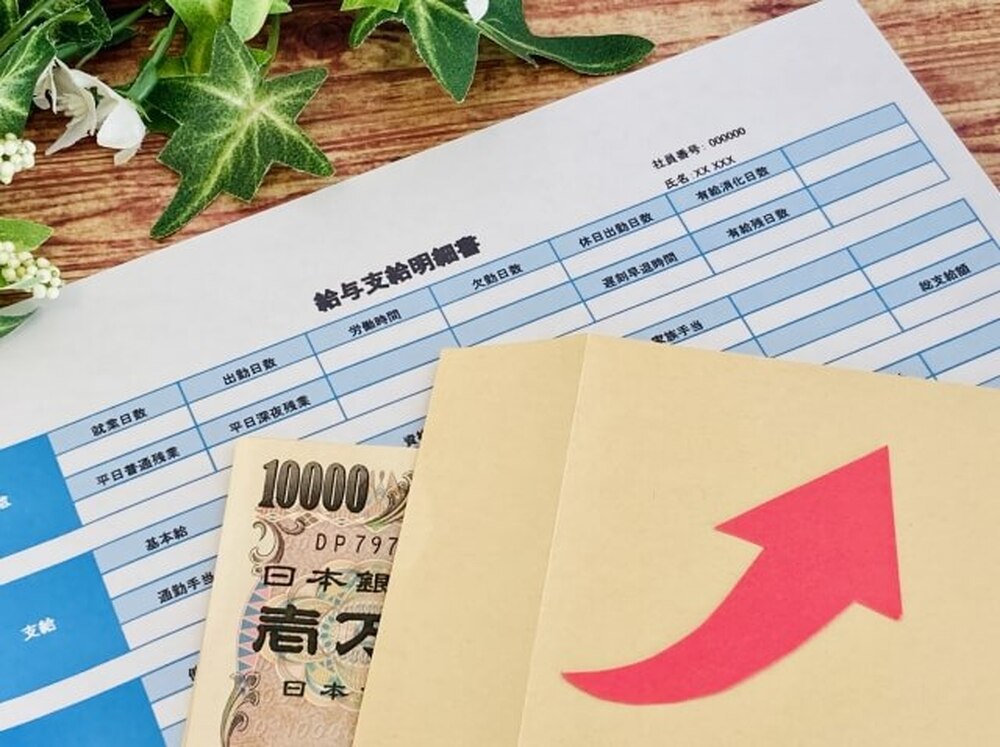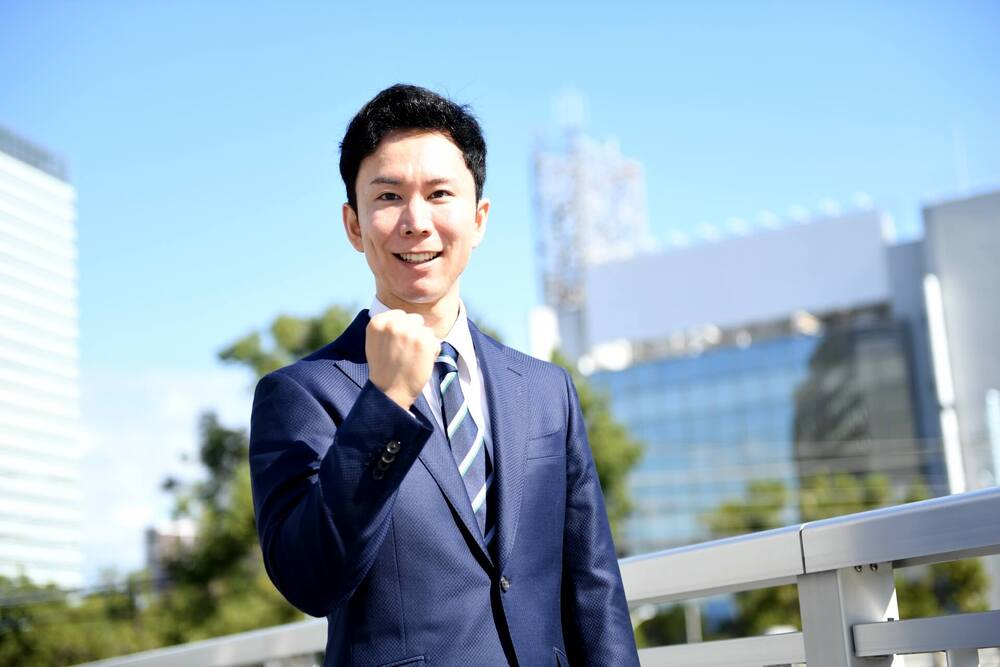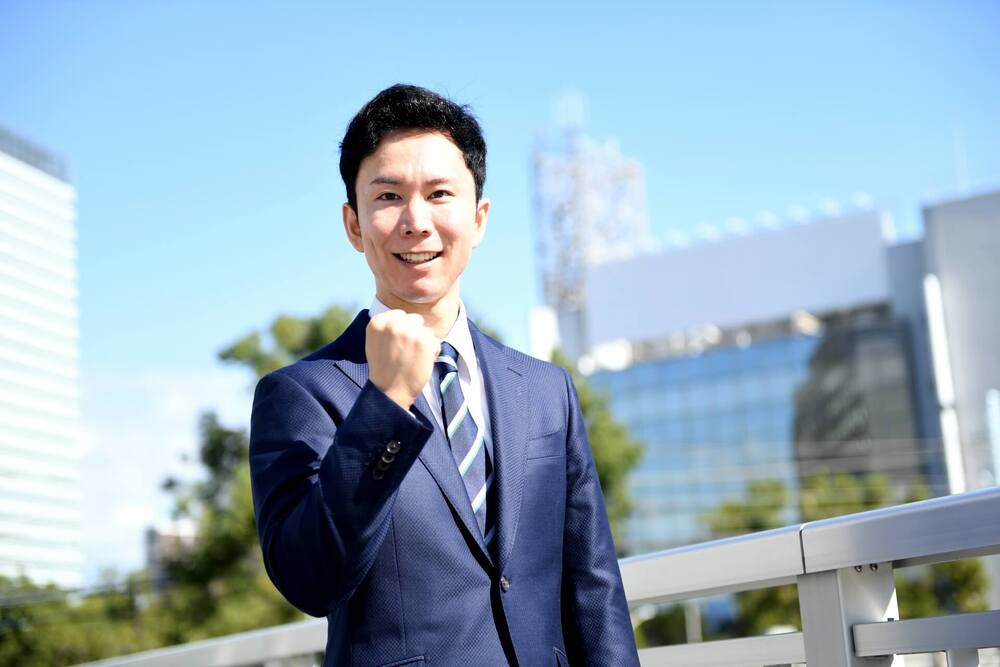「外資系企業に興味があるが、20代で挑戦するのは難しそう」このような不安を抱えていませんか?
結論から述べると、ポテンシャルのある20代だからこそ、外資系企業への就職に有利に働く場面もあります。
本記事では外資系企業で求められる資質や、20代での外資系転職を成功させるポイントについて解説します。

「外資系企業に興味があるが、20代で挑戦するのは難しそう」このような不安を抱えていませんか?
結論から述べると、ポテンシャルのある20代だからこそ、外資系企業への就職に有利に働く場面もあります。
本記事では外資系企業で求められる資質や、20代での外資系転職を成功させるポイントについて解説します。
Are you interested in working for a foreign-affiliated company, but feel that it would be difficult for a young person in his or her 20s to take on the challenge?
As it turns out, there are situations in which being in your 20s with potential can be advantageous for finding a job at a foreign-affiliated company.
In this article, we will explain the qualities required by foreign-affiliated companies and the key points for a successful job change to a foreign-affiliated company in one's 20s.

20代で外資系企業に興味を持っている場合は、早めに行動に移すことをおすすめします。
外資系ではスキルと経験が重視されるのは事実ですが、年齢を重ねるほどさらにハードルが上がってしまう側面もあります。
20代こそ外資系への転職に挑戦すべき具体的な理由は、下記の5点です。
順番に詳しく解説いたします。
外資系企業と日系企業では、雇用の考え方が異なります。
日系企業に長年勤めてしまうと、雇用の特性上、外資系企業で求められる人材とはかけ離れた経歴を積んでしまう懸念があります。
具体的には外資系企業はジョブ型雇用、日系企業はメンバーシップ型雇用が基本です。
ジョブ型雇用は、「ポジションや仕事内容に人を割り振る」という考え方です。そのポジションに合う専門性や経験があることが採用基準になっています。
一方でメンバーシップ雇用は、「人に仕事を割り振る」という考え方です。会社の事業の成長に応じた人数をまず採用し、それぞれの個人に合う仕事を割り当てます。
外資系と日系の雇用の考え方の違いをまとめると、下記の通りです。
外資系企業では、狭く深くキャリアを積んできた人が採用されやすい傾向にあります。
ところが、日系企業で外資系企業で通用する専門性を磨くのは容易ではありません。日系企業では社内で長く働く人材に育てるために、頻繁に全く関係ない部署に異動させるからです。
日系企業に長く在籍するほど「広く浅く」のキャリアになっていくため、「30代、40代になってもこれといった専門性がない」といった状況に陥りがちです。こうなってしまうと、外資系企業への転職は手遅れかもしれません。
外資系企業では日系企業以上にスキルと経験が求められます。そのため、20代での外資系転職は簡単というわけではありません。キャリアの浅さはどうしてもネックになります。
とはいえ、何か一つでも強みになる経験がある場合は、若さが有利に働きます。
20代でリーダー職を経験した人と30代でリーダー職を経験した人が同時に面接に来た場合を想像してみてください。
下記の2名が面接に来たことを想定してみましょう。
外資系企業は、日系企業とはカルチャーが大きく異なります。
日系企業での常識が通用しないことも多いため、30代、40代で初めて外資系企業を経験する場合は馴染むのに苦労する可能性があります。
外資系企業と日系企業のカルチャーの違いをまとめると以下の通りです。
スキルと実績重視の外資系企業ですが、未経験で転職できる求人も存在します。
大手転職サイトの外資系の求人数と、その中で未経験可の求人数は以下の通りです。
※2024年1月現在
※「外資系」「未経験」のキーワード検索、もしくは条件指定した上でカウント
大手の転職サイトでは、外資系企業の求人数は140件未満、割合は10%未満となっています。
転職サイトでは未経験求人は少ないですが、外資系企業に特化したエージェントに相談することで選択肢が広がります。
当サイトUnited Worldで扱っている外資系求人は、全体の10%程度が未経験可の求人ですので、ぜひご相談ください。
20代のうちから外資系企業に転職することで、若いうちから力がつきキャリア面で有利になります。
外資系企業は多国籍のメンバーで構成されており、異なる文化やビジネス環境に触れる機会が豊富です。グローバルな環境で国際的な経験を積むことで、広い視野を持つことができます。
また、外資系企業は年功序列ではないため、日系企業と比較して成長の機会が豊富です。新しいプロジェクトや責任あるポジションを経験することで、実力を発揮できる環境が整っています。
【外資系企業で経験できる成長機会の例】

If you are in your 20s and interested in a foreign company, we recommend that you take action as soon as possible.
While it is true that skills and experience are important in foreign-capitalized companies, there are aspects of the job market that become even more challenging as you get older.
The following are five specific reasons why those in their 20s should try to change jobs to a foreign-capital company.
We will explain in detail in the following order.
The concept of employment differs between foreign-affiliated companies and Japanese-affiliated companies.
If you work for a Japanese company for many years, you may end up with a career that is far different from what is expected of you at a foreign company due to the nature of employment.
Specifically, foreign-affiliated companies employ people on a job basis, while Japanese-affiliated companies employ people on a membership basis.
Job-based employment is based on the concept of "assigning people to positions and job descriptions. The hiring criteria are based on expertise and experience that match the position.
Membership employment, on the other hand, is based on the concept of "assigning jobs to people. The company first hires a number of people in accordance with the growth of the company's business, and then assigns jobs that suit each individual.
The following is a summary of the differences between the employment approaches of foreign-affiliated and Japanese-affiliated companies.
Foreign-affiliated companies require more skills and experience than Japanese-affiliated companies. Therefore, it is not easy to change jobs at a foreign company in your 20s. A young career will inevitably be a bottleneck.
However, if you have any experience that can be an advantage, your youth can work to your advantage.
Imagine if a person who experienced a leadership position in his/her 20s and a person who experienced a leadership position in his/her 30s came for an interview at the same time.
Let's assume that the following two people come to the interview.
The culture of a foreign company is very different from that of a Japanese company.
Since the common sense of Japanese companies often does not apply, those in their 30s and 40s who are experiencing a foreign company for the first time may have a hard time adjusting.
The following is a summary of the cultural differences between foreign-affiliated companies and Japanese-affiliated companies.
While skills and performance are important in foreign-capitalized companies, there are also jobs that allow you to change jobs with no experience.
The following table shows the number of job openings in foreign-capitalized companies on major job search websites and the number of those with no experience.
*As of January 2024
*Count based on keyword searches for "foreign-capitalized" and "inexperienced" or after specifying conditions.
Major job sites have less than 140 job openings in foreign-capitalized companies, and the percentage is less than 10%.
Although there are not many unexperienced jobs on job sites, you can expand your options by consulting with an agent who specializes in foreign-capitalized companies.
Please consult with an agent who specializes in recruiting for foreign-capital companies to expand your options.
By changing jobs at a foreign company while you are still in your 20s, you will gain strength while you are still young, which will give you an advantage in your career.
Foreign-affiliated companies are composed of multinationals, and there are many opportunities to be exposed to different cultures and business environments. By gaining international experience in a global environment, you will gain a broader perspective.
In addition, foreign-affiliated companies do not have a seniority system, so there are more opportunities for growth than in Japanese-affiliated companies. In addition, foreign-affiliated companies do not have a seniority system, so there are more opportunities for growth than in Japanese-affiliated companies.
[Examples of growth opportunities you can experience at a foreign company]

United Worldが保有するデータでは、20代で外資系企業に転職した人の平均年収は550万円です。

令和3年分の民間給与実態統計調査によると、日本の20〜24歳の平均年収は269万円、25〜29歳の平均年収は371万円です。20代で外資系企業に転職することで、同年代の平均年収を大幅に上回ることができます。
平均年収が最大になる55〜59歳も含めた日本人全体の平均給与は、443万円です。外資系に転職することで、20代にして日本人の平均年収を上回ることも可能です。
若いうちから高収入を得ることで経済的な自立が早まるため、自身の生活費や将来の資産形成に余裕を持つことができます。生活面の充実にとどまらず、自身の教育やスキルの向上にリソースを充てられる点もメリットのひとつです。学びたい分野への投資が可能となり、さらなる個人の成長やキャリアの進展が期待できます。
給与面で考えると非常に魅力的な外資系企業ですが、評価基準が厳しい、雇用が安定しない、福利厚生が乏しいなどのデメリットもあります。外資系企業で働く上での注意点も後ほど解説しますので、自身に合った環境か吟味した上で転職を考えてください。

According to data held by United World, the average annual salary of those who changed jobs at a foreign company in their 20s is 5.5 million yen.

the 2021 Survey of Private Sector Salaries
According to the 2021 Survey of Private Sector Salaries, the average annual salary in Japan for 20-24 year olds is 2.69 million yen, and for 25-29 year olds it is 3.71 million yen.
The average salary for all Japanese, including those aged 55-59, who earn the largest average annual salary, is 4.43 million yen. By changing jobs to a foreign-affiliated company, it is possible to exceed the average annual salary of Japanese people in your 20s.
Earning a high income from a young age will help you become financially independent faster, allowing you to have enough money for your own living expenses and future asset building.
Another benefit is that you can not only improve your lifestyle, but also allocate resources to your own education and skill development.
You will be able to invest in the areas you want to learn and further your personal growth and career progression.
Although foreign-affiliated companies are very attractive in terms of salary, there are also disadvantages such as strict evaluation standards, unstable employment, and lack of benefits.
We will discuss some of the points to keep in mind when working for a foreign-affiliated company later in this article, so please consider whether the environment is right for you before changing jobs.

外資系企業に転職する上で必要なスキルは、主に3つあります。
順に解説いたします。
外資系企業に転職するには、英語力は必須です。英語が公用語になっている企業は意外と少ないですが、日系企業より英語を使う機会が多いことは確実です。
英語が得意だと、外資系企業で働く上でアドバンテージになります。
上司が日本語を話せない外国人だったり、本社とのやりとりが英語だったりと日常的に英語を使うことになる可能性が高いため、英語に抵抗のある人にとっては厳しい環境です。
目安としては、TOEIC800点以上の英語力が求められます。
800点は、生活やビジネスで困ることはないラインといわれています。
TOEICの点数を就職の要件や参考にしている企業もありますが、あくまで目安であり、英語でのコミュニケーション能力の高さが重要です。
外資系企業では、高いコミュニケーションスキルを求められます。
外資系企業で求められるコミュニケーションスキルは、大きく分けて以下の3種類あります。
実力主義の外資系企業では、会社への貢献度を厳しく見られるため、意見を明確に述べる必要があります。年齢や役職に関係なく、会社にとって有益な提案は臆せず伝えることが重要です。
論理的で端的な話し方が好まれるため、有益なアイデアであっても、それを論理的に説明できなければ周りを説得できない可能性があります。外資系企業では論理的思考と組み合わせたコミュニケーションスキルが求められます。
外資系企業では異なる国やバックグラウンドを持つ従業員と協力して業務を進めることが一般的です。
英語力そのものに限らず、考えの多様性を尊重しながら意思疎通することが大切です。
異なる拠点やチームメンバーとのリモート会議も頻繁に行われます。
ビデオ会議やメール、プロジェクト管理ツールを使った効果的な意思疎通も大切です。
特にビデオ会議では、対面での会議以上に間の取り方やリアクションに気を配る必要があります。
変化に適応する柔軟性が求められます。
外資系企業で働いていると、急な方針の変化はつきものです。外資系企業は国際市場で事業展開しており、市場状況や競合環境が急激に変化します。
以下のような変化が突然、それも同時期に起こることもあります。
【外資系企業で想定される変化】
情報不足のなか物事を進めなければならないこともありますが、上層部が出す指示の真意を汲み取り、想像力と柔軟性を駆使して乗り越える必要があります。
考えずに黙々と仕事を進めたい人や、不確定な状態で動くことにストレスを感じる人には厳しい環境になるかもしれません。

There are three main skills required for a career change to a foreign company.
We will explain them in this order.
English language skills are essential if you want to change jobs at a foreign company. Surprisingly few companies make English their official language, but you will certainly have more opportunities to use English than at Japanese companies.
If you are good at English, it will be an advantage when working for a foreign company.
If you are not comfortable with English, it is a tough environment because you are likely to use English on a daily basis, such as when your boss is a foreigner who cannot speak Japanese or when communicating with the head office in English.
As a general guideline, a TOEIC score of 800 or higher is required.
A score of 800 is said to be the line where you will have no problems in daily life or business.
Some companies use TOEIC scores as a requirement or reference for employment, but it is only a guideline. It is important to have good communication skills in English.
Foreign-affiliated companies require a high level of communication skills.
There are three main types of communication skills required by foreign-capital companies
In meritocratic foreign companies, contribution to the company is strictly monitored, so it is necessary to express opinions clearly. Regardless of your age or position, it is important that you do not hesitate to express suggestions that are beneficial to the company.
Logical and straightforward speech is preferred, so even if you have a useful idea, if you cannot explain it logically, you may not be able to persuade others. Communication skills combined with logical thinking are required in foreign companies.
It is common in foreign-affiliated companies to work with employees from different countries and backgrounds.
It is important to communicate while respecting diversity of ideas, not limited to English proficiency itself.
Remote meetings with different locations and team members are frequent.
Effective communication through videoconferencing, e-mail, and project management tools is also important.
Especially in videoconferences, it is necessary to pay more attention to pauses and reactions than in face-to-face meetings.
Flexibility to adapt to change is required.
When working for a foreign company, sudden changes in policy are common. Foreign-affiliated companies operate in international markets, and market conditions and the competitive environment change rapidly.
The following changes can occur suddenly and at the same time.
[Changes that can be expected in a foreign-affiliated company]
There are times when things must be done in the face of a lack of information, but it is necessary to grasp the true meaning of the instructions given by upper management and use imagination and flexibility to overcome these challenges.
This can be a tough environment for those who prefer to work quietly and without thinking, or for those who find it stressful to work under uncertain conditions.

外資系企業にはどのような人が適しているのでしょうか。
外資系企業に向いている人の特徴を4つ紹介します。
順番にご説明します。
「20代こそ外資系への転職に挑戦すべき理由4つ」の章でご紹介した通り、年齢の割に目立つような経歴が何か一つある場合は外資系で活躍できる資質があります。
【外資系転職で武器になる経験の例】
若くして結果を残しており、それをわかりやすく言語化できる能力がある時点で、外資系企業で評価される可能性は十分にあります。
日系企業で何かの分野で実績を残し、その分野での専門性を磨いていこうと思ったタイミングで転職活動を開始するとスムーズです。外資系のジョブ型雇用にシフトしてキャリアを積んでいけることでしょう。
予想外の変化にも臨機応変に対応し、効率よく業務を進められる人が向いています。
外資系企業では意思決定にスピード感があります。
その上、特に海外本社が経営を主導している場合は、確定事項になってから末端の日本支社に指示が降りるため、いきなり大きな変更が降ってきたように感じることも少なくありません。
【覚悟しておきたい変化の例】
自分の成果をはっきり主張できる人は外資系企業に向いています。
外資系企業の給与体系は成果主義であることに加え、同僚や部下からの評価も反映される仕組みを取っている企業が多いです。
外資系企業のこういった評価制度を360°評価といい、評価の時期が近づくと、同僚や仕事上関わりのある社員10名程度に依頼して、自身の評価を書き込んでもらいます。
周囲の社員から良い評価を得るには、普段からの発言量や実績の主張が大切です。
大人しくしていると、埋もれてしまって正当に評価されないことがあります。
ワークライフバランスを実現したい人も外資系企業に向いています。
個人の役割が明確化されている外資系企業では、オンとオフを切り替えてメリハリのある働き方を実現しています。効率重視のため、定時に帰ってはいけないという雰囲気もありません。
歓迎会や送別会はランチタイムに行われることが一般的です。
チームビルディング制度が導入されている会社では、こういったランチタイムのイベントの予算は会社から支給されます。
勤務時間外の付き合いはなく、特に飲み会が苦手な人にとっては最適な環境です。
有給取得率が高い点も魅力です。日系企業の有給取得率は 62.1%であるのに対し、外資系企業はほぼ100%となっています。

What kind of person is suitable for a foreign company?
Here are four characteristics of people who are suited to work for a foreign-affiliated company.
I will explain them in this order.
As explained in the chapter "4 Reasons Why You Should Try a Career Change to a Foreign Company in Your 20s," if you have one career that stands out for its age, you have the qualities to be successful in a foreign company.
[Examples of experience that can be used as a weapon in a career change at a foreign company]
When you have achieved results at a young age and have the ability to verbalize them in an easy-to-understand manner, there is a good chance that you will be evaluated by a foreign company.
It will be smoother if you start your job search at a time when you have achieved results in some field at a Japanese company and you want to hone your expertise in that field. You will be able to shift to job-based employment at a foreign company and build your career.
The ideal candidate is someone who can respond flexibly and efficiently to unexpected changes.
Decision-making at foreign-affiliated companies is fast-paced.
In addition, especially when the management is led by the overseas headquarters, instructions are given to the Japanese branch office after they are finalized, so it is not uncommon to feel as if a major change has suddenly fallen upon you.
[Examples of changes you should be prepared for]
People who can clearly assert their own achievements are suited to work for a foreign company.
In addition to a performance-based salary system, many foreign-capital companies have a system in which evaluations from colleagues and subordinates are also reflected.
When the time for evaluation approaches, the company asks about 10 colleagues and other employees who are involved in the company's business to write down their own evaluations.
In order to receive good evaluations from the employees around you, it is important to speak up on a regular basis and assert your achievements.
If you are quiet, you may be buried and not be evaluated fairly.
People who want to achieve work-life balance are also suited to foreign-capitalized companies.
At foreign-affiliated companies, where individual roles are clearly defined, employees are able to switch between on- and off-duty work and achieve a balanced work style. Because of the emphasis on efficiency, there is no atmosphere in which employees are not allowed to leave on time.
Welcome and farewell parties are generally held during lunch time.
In companies where a team building system is in place, the budget for these lunchtime events is provided by the company.
There is no socializing outside of work hours, which is ideal for those who are not particularly fond of drinking.
The high rate of paid work is also attractive. The paid vacation rate at Japanese companies is 62.1%, whereas at foreign-affiliated companies it is almost 100%.
20代で外資系企業に転職した人の体験談を4件ご紹介します。
転職するか考える上で、参考にしてみてください。
Aさん
自主性と自己管理を育む理想的な環境です。
年齢や就業年数に関係なく、積極的な意見表明が歓迎され新たな学びの機会も豊富に提供されるため、向上心や知識欲に忠実に振る舞うことが評価につながります。
ただし、当然「外資系企業」と名のつく企業全てに当てはまる訳ではなく、企業ごとに多様な文化やスタイルが存在します。
このため、転職前にはそれぞれの企業文化を理解するためのリサーチが欠かせませんが、適切な企業を選べば自身のキャリアとスキルの大きな飛躍に繋がります。
自分自身を表現し、学ぶ意欲が高い人にとって、外資系企業は幅広い機会と可能性に出会える場所だと感じます。
年齢に関係なく成長の機会を与えられる外資系企業は、向上心のある人には最適の環境です。
Bさん
社員数が約400名いる中の9割が外国籍のとてもグローバルな職場で社風もとてもコミュニケーションがとりやすい環境でした。
実力主義なので定期的に昇給審査があり、働いた分しっかりと評価してくれる職場にとても満足しました。
チームワークをとても大切にしており、役職ポジションの方々に対して意見を言えるような風通しの良い環境が魅力に感じました。
風通しが良く、意見を言いやすい社風も外資系企業の特徴の一つです。
Cさん
みんなどこまでが自分の仕事範囲なのかしっかり意識して業務していました(日系はグレーなところは皆でカバーし合うが、私のいた外資では自分の仕事はココまでと明確でした)。
一人づつキュービクル(仕切られた空間)がありました。
アメリカ本社の意向が日本支社まで行き届くため、会社の今の業績、これからの予測、マーケティング方針、プロダクトについてなど定期的にシェアされ、社内マーケティングがしっかりしています。KPIはかなり真面目に数値化して行いました。
誰でもいつでも発言することはWelcomeでした。
逆にミーティングで発言しないということは、そこにいる価値がないとみなされます。
外資系企業は日系と比較して個人主義の側面が強く、決められた範囲内で着実に成果を残す必要があります。
Dさん
面接の時点からいわゆる、典型的な国内企業の面接とは少し異なり、個性や性格を深掘りする質問やその場の雰囲気や状況への対応力を重視されていた気がします。
入社後も部署が違う人たちとも話す機会が多く、基本的にカジュアルに意見交換ができたり、会社主催のパーティもありました。
また国外からの管理職の受け入れにもオープンで、異なる文化や環境に対しての柔軟性がありました。
賞与に対して、個々が自分自身への評価をし、それに対する金額が付与されるなど周りからの評価のみならず、自分の意思も反映できます。
さまざまなバックグラウンドの社員が集まる外資系企業では、異文化コミュニケーション能力や適応力が求められます。
Here are four stories of people in their 20s who have changed jobs at foreign companies.
Please use them as a reference when considering whether to change jobs.
Mr. A
An ideal environment that fosters independence and self-management.
Regardless of age or length of employment, active expression of opinions is welcomed and plenty of opportunities for new learning are provided, so being true to your ambition and desire for knowledge is highly valued.
However, of course, this does not apply to all "foreign-affiliated" companies, and each company has its own diverse culture and style.
Therefore, research to understand the culture of each company is essential before changing jobs, but choosing the right company can lead to a great leap forward in your career and skills.
For those who are willing to express themselves and learn, we feel that foreign-capitalized companies offer a wide range of opportunities and possibilities.
With opportunities for growth regardless of age, foreign-affiliated companies are the perfect environment for ambitious individuals.
Mr. B
It is a very global workplace with about 400 employees, 90% of whom are foreign nationals, and the corporate culture is very communicative.
The corporate culture is very communicative. I was very satisfied with the workplace, which is based on a meritocracy, with regular salary increases and evaluations based on the amount of work done.
Teamwork is very important, and I was attracted to the open environment where I could express my opinions to the people in positions of authority.
The open corporate culture and the ease with which you can express your opinions is one of the characteristics of a foreign company.
Mr. C
Everyone was very conscious of the scope of their own work (in Japanese companies, gray areas are covered by everyone, but in the foreign company I worked for, it was clear that my work was limited to this area).
(At the foreign company I worked for, it was clear that my work was limited to this area.)
Each person had a cubicle (partitioned space).
KPI's were quantified very seriously.
Everyone was welcome to speak up at any time.
Conversely, not speaking up at meetings was considered not worth being there.
Compared to Japanese-affiliated companies, foreign-affiliated companies have a strong individualistic aspect, and you need to steadily achieve results within a set range.
Mr. D
From the interview, I felt that the interview was a little different from a typical interview at a domestic company, with questions that delved deeper into personality and character, and an emphasis on the ability to respond to the atmosphere and situation.
After joining the company, I had many opportunities to talk with people from different departments, and we were basically able to exchange opinions in a casual manner, and there were also parties hosted by the company.
The company was also open to accepting managers from outside of Japan, and there was flexibility in dealing with different cultures and environments.
In terms of bonuses, each employee evaluates himself/herself and is given an amount accordingly, which reflects his/her own will as well as the evaluations of others.
In a foreign company where employees come from various backgrounds, cross-cultural communication skills and adaptability are required.

華やかなイメージのある外資系企業ですが、デメリットもあるため転職前に吟味する必要があります。
外資系企業で働く上で注意すべきポイントを5つ解説します。
順番に解説いたします。
成果主義であることは外資系企業のメリットですが、評価によっては減給もありえます。
成果が残せない期間が長く続くと、最悪の場合クビになることも。
とはいえ日本で企業活動を行っている場合は、外資系企業であっても日本の法律が適用されるため、突然「明日から来なくていい」と言い渡されるような極端なケースはありません。
日本の外資系企業でクビになる場合は、具体的には下記の流れになることが多いです。
「隣の部署のあの人がやたらと人事面談が多いと思っていたら、いつの間にかいなくなっていた。クビになったらしい」という話は、外資系企業で働いていると日常的に聞こえてきます。
企業によっては、役職者の場合は数年単位での契約になっている場合もあり、期間内に一定の成果を残せないと契約終了という厳しい世界になっています。突然役職者がごっそりといなくなり、メンバーが入れ替わることもあります。
日本に進出した外資系企業の場合、業績が悪化すると日本から撤退して社員が失業するリスクも。
また、外資系企業が他の企業との合併や買収を行う際は、事業の再構築や統合が進められます。それに伴い重複する業務や職位が削減され、従業員が失業する可能性があります。
【外資系企業の日本撤退事例】
方針の変更や組織変更など、予想外の変化に振り回されることが多いです。
意思決定にスピード感があることに加え、海外の本社での決定事項が、過程を知らされることなく降りてくることが理由です。
組織変更や急なプロジェクトの立ち上げが頻繁に起こります。日本支社は海外の本社から物理的に遠く、裁量権もないため、振り回されているように感じることが多いでしょう。
想定外の事態に臨機応変に対応してきた経験は、後のキャリアで必ず活かせる要素になるため、長期的な視点で考えればプラスにもなります。
日系企業の特徴として、住宅手当や退職金制度などの福利厚生が手厚い点があります。
これは一つの企業で長く働くことが前提になっていることが理由ですが、外資系企業にはこの前提はありません。
そのため、外資系企業では福利厚生はほとんど用意されていません。
海外企業の日本支社であることから、外資系企業のオフィスはアクセスの良い東京や大阪などの都市部に多いです。
家賃が高いエリアに住むことになるものの家賃補助が出ず、生活が苦しくなることもありますので、年収だけではなく福利厚生も含めて考える必要があります。
外資系企業は日系に比べて給与が高めに設定されていますが、福利厚生がないことも理由の一つといえます。
国際的なイメージが強い外資系企業ですが、海外企業が日本に進出した場合だと、海外赴任や海外出張の機会は意外と少ない傾向にあります。
日本にいながら外国人と関わる機会は日系企業に比べて圧倒的に多いですが、海外企業が日本での事業に特化するために作られた拠点で働いている以上、自分が海外に出向く機会は少ないです。
海外で働く機会が欲しい場合、本社か他の国の支社に異動するのが現実的といえるでしょう。

Although foreign-affiliated companies have a glamorous image, they also have disadvantages that need to be examined before changing jobs.
Here are five points to keep in mind when working for a foreign-affiliated company.
I will explain in the following order.
Although the performance-based system is a merit of foreign-affiliated companies, you may be forced to take a pay cut depending on your evaluation.
In the worst case scenario, you may be fired if you continue to fail to deliver results for a long period of time.
However, when a company is operating in Japan, Japanese laws apply even if it is a foreign-affiliated company, so there are no extreme cases such as being suddenly told, "You don't have to come here tomorrow.
When you are fired at a foreign-affiliated company in Japan, the following is a specific example of the process.
If you think that the person in the department next to you is having too many personnel interviews, he or she will be gone before you know it. I heard that he was fired." Such stories are heard on a daily basis when working at foreign companies.
In some companies, the contracts for executives are for a period of several years, and if they do not achieve a certain level of results within that period, their contracts are terminated. Sometimes, the managers suddenly disappear and are replaced by new members.
In the case of foreign-affiliated companies that have expanded into Japan, there is a risk that if their performance deteriorates, they will withdraw from Japan and their employees will lose their jobs.
In addition, when a foreign company merges with or acquires another company, restructuring and integration of the business are promoted. In addition, when a foreign company merges with or acquires another company, it may restructure or integrate its operations, resulting in the reduction of overlapping operations or positions, which may lead to employee unemployment.
[Examples of Foreign Affiliates Withdrawing from Japan]
You may be often swept up in unexpected changes, such as policy changes and organizational changes.
In addition to the speed of decision-making, the reason for this is that decisions made at the overseas headquarters come down to you without informing you of the process.
Organizational changes and sudden project launches occur frequently. Since the Japanese branch office is physically far away from the overseas headquarters and has no discretionary authority, you will often feel as if you are being pushed around.
The experience of dealing with unexpected situations in a flexible manner is a factor that you will surely be able to utilize later in your career, which can be a plus from a long-term perspective.
One of the characteristics of Japanese-affiliated companies is that they offer generous benefits such as housing allowances and retirement plans.
This is because it is assumed that employees will work for one company for a long period of time, but this assumption does not apply to foreign-affiliated companies.
For this reason, foreign-affiliated companies rarely offer benefits packages.
Being the Japanese branch of an overseas company, offices of foreign-affiliated companies are often located in urban areas such as Tokyo and Osaka, which have good accessibility.
Although you will be living in an area with high rent, you may not receive rent subsidies, which can make your life difficult, so you need to consider not only annual salary but also benefit packages.
One of the reasons why foreign-affiliated companies pay higher salaries than Japanese-affiliated companies is because of the lack of benefit packages.
Although foreign-affiliated companies have a strong international image, there are surprisingly few opportunities for overseas postings or overseas business trips when foreign companies expand into Japan.
Although there are far more opportunities to interact with foreigners while in Japan compared to Japanese companies, as long as you are working at a base created by a foreign company to specialize in its business in Japan, there are few opportunities for you to go abroad yourself.
If you want opportunities to work overseas, it is realistic to transfer to the head office or a branch office in another country.

外資系企業へ転職する場合、準備すべき内容は日系企業の場合より多く、転職活動中の負担は大きくなります。
20代で外資系企業への転職を成功させるポイントは4つあります。
順番に詳しく解説いたします。
ジョブ型雇用でスキル重視の外資系企業では、日系企業のように「入社させてから教育する」という考え方は基本的にありません。採用されるためには、即戦力として活躍できることをアピールすることが重要です。
面接では、自分の強みや即戦力としてのポイントを明確に伝えてください。具体的な実例を交えて、自分の強みを伝える準備をしっかりと行いましょう。
自分が応募するポジションに必要なスキルを徹底的に理解し、それに関連する専門的なスキルを伸ばす必要があります。
過去の仕事やプロジェクトの内容を棚卸しして、達成した成果や、目標を達成した方法を具体的に言語化してください。数値や実際の業績を挙げることで、即戦力性を証明できます。
外資系企業の面接対策は、こちらの記事をぜひ参考にしてください。
外資系面接で多い20の英語質問を和訳付きで紹介!流れやコツも解説します
外資系企業では、応募の際に英文レジュメの提出を求められます。日系企業への転職の際は職務経歴書が求められますが、英文レジュメではより簡潔に書く必要があり、強調して書くべきポイントも少し異なるため対策が必要です。
簡潔で読みやすいフォーマットを選びましょう。過度な装飾や複雑なデザインは避け、情報をわかりやすく提示します。
英文レジュメのテンプレートはネット上で検索すると無料でダウンロードできますので、自分の経歴に照らし合わせて書きやすい形式のものを選択してください。
職務経歴の説明や実績において、アクションワード(achieved、managed、 implementedなど)を使用して自分の貢献や行動を強調します。
学歴においては、特に留学や国際的な学習経験があれば詳しく記載してください。英語スキルは特に重視されますので、英語力を具体的に示し、TOEICやTOEFLのスコアやビジネス英語の経験を記載しましょう。
英語面接の対策も必要です。
企業にもよりますが、外資系企業の選考は下記の手順で進んでいく場合が多いです。
ほとんどの場合、最終面接は海外の本社の社員との英語面接になります。二次面接あたりから英語面接を課される場合もあります。
ネイティブ並みの英語力ではない場合、この英語面接の対策が非常に重要です。逆にネイティブ並の英語力はなくても、念入りに対策をすれば英語面接は乗り切れます。
まずは簡潔な自己紹介を練習しましょう。氏名、学歴、職歴、強み、キャリアゴールなどを含め、自分のアピールポイントを明確に伝えることが大切です。
よくある面接質問に対する回答を用意しておきましょう。
例えば、「自分の強みや弱みは何か」「なぜ当社を選びましたか」「過去の成功体験や困難を乗り越えた経験」などが挙げられます。
業界や職種に特有のビジネス英語や業界用語を理解する必要があります。業界の報道やネット記事を読むなどして、現在担当しているビジネスと応募先の企業のビジネス領域に関連する表現をメモして面接で使えるようにしておきましょう。
面接前に応募企業や業界について十分なリサーチを行い、企業のビジョンやミッション、最近のニュースなどを理解しておくことも重要です。
スムーズに話すためには英語を話すことに慣れておく必要があります。
転職エージェントと一緒に模擬面接を実施し、自分の回答スタイルや表現を確認します。フィードバックをもらい、改善点を見つけましょう。
外資系企業に転職するには、入念なキャリアの棚卸しや、英文レジュメ・英語面接の準備など、日系企業に転職する場合より準備の負担が大きくなります。
一人でできることには限りがありますので、外資系転職に強い転職エージェントの利用を強くおすすめします。
広いネットワークを持つプロである転職エージェントは、求職者のスキルや経験に基づいて適切な職種や企業を提案できます。これにより、自身の強みを最大限に活かせる仕事に出会いやすくなります。
転職エージェントを利用することで、面接対策や模擬面接を無料で受けられる点も大きなメリットです。
面接後に企業からのフィードバックをもらえる場合もあります。

When changing jobs at a foreign-affiliated company, there are more things to prepare for than at a Japanese-affiliated company, and the workload during the job change process is greater.
There are four key points to successfully changing jobs at a foreign company in your 20s.
We will explain in detail in the following order.
Foreign-capitalized companies, which emphasize skill-based employment, do not have the same "train the employee after hiring" mentality as Japanese companies. In order to be hired, it is important to demonstrate that you can play an active role as an immediate asset.
During the interview, clearly communicate your strengths and points that make you an immediate asset. Be well prepared to communicate your strengths with specific examples.
You need to thoroughly understand the skills required for the position for which you are applying and develop any relevant professional skills.
Take stock of your past work and projects and verbalize in concrete terms the results you have achieved and the ways in which you have met your goals. By citing figures and actual accomplishments, you can prove your ability to make an immediate impact.
For more information on how to prepare for an interview at a foreign company, please refer to this article.
20 Common English Questions at Gaishikei Interviews with Japanese Translation! We also explain the flow and tips!
When applying for a job at a foreign company, you will be asked to submit your resume in English. While a resume is required when applying for a job at a Japanese company, a resume in English needs to be more concise, and the points to emphasize are slightly different, so you need to be prepared.
Choose a format that is concise and easy to read. Avoid excessive ornamentation or complicated designs and present information clearly.
You can download free English resume templates by searching online, so choose a format that is easy to write in relation to your background.
Use action words (e.g., perceived, managed, implemented, etc.) to emphasize your contributions and actions in your job description and accomplishments.
In your educational background, provide details of your study abroad and international study experience, if any. English skills are especially important, so be specific about your English proficiency and include your TOEIC or TOEFL scores and business English experience.
You also need to prepare for the English interview.
Although it depends on the company, the selection process for foreign companies often follows the steps below.
In most cases, the final interview is in English with an employee from the overseas headquarters. In some cases, an English interview is required around the second round of interviews.
If your English is not as good as native English speakers, it is very important to prepare for this interview. On the other hand, even if your English is not as good as a native speaker, you can get through the interview if you prepare carefully.
First, practice a brief self-introduction. Include your name, education, work history, strengths, career goals, etc. It is important to clearly convey what appeals to you.
Prepare answers to common interview questions.
For example, "What are your strengths and weaknesses?", "Why did you choose our company?", "Past successes and difficulties you have overcome", etc.
You should understand business English and industry terminology specific to your industry and position. Read industry news reports and online articles to learn about the business you are currently in charge of and how it fits in with your job.
Changing jobs at a foreign company requires more preparation than changing jobs at a Japanese company, such as carefully taking stock of your career, preparing your resume in English, and preparing for interviews in English.
There is a limit to what you can do on your own, so we strongly recommend the use of a recruitment agency that specializes in foreign-capitalized companies.
A professional recruitment agent with a broad network can suggest suitable positions and companies based on the skills and experience of the candidate. This makes it easier to find a job where you can make the most of your strengths.
Another major advantage of using a recruitment agency is that you can receive free interview preparation and mock interviews.
In some cases, you will receive feedback from the company after the interview.

外資系企業に転職する際は、外資系に特化した転職エージェントやサイトを利用することが成功の近道です。
外資系に転職したい20代におすすめの転職エージェント・サイトを4つご紹介します。
順番に解説します。
United Worldは、語学力や海外経験を活かせる求人を扱う転職エージェントサービスです。国籍関係なく優秀な人材を採用したい外資系企業の求人を700件以上保有しています(2024年1月現在)。
「誰もがどこでも働ける世界を」をモットーに、親身なマンツーマンサポートを受けられます。未経験可能の求人も比較的多いため、気軽に相談しやすい点が特徴です。
キャリアアドバイザーが企業と密に連絡を取り合っており、求人票に書かれている以上の情報を提供できるため安心して転職活動を進められます。
マイケル・ペイジは1976年にロンドンで創業した転職エージェントで、2001年から日本での転職活動支援を行っています。
外資系企業への転職支援に特化しており、英語力の確認のためにエージェントとの初回面談で英会話を課されます。
在籍するキャリアコンサルタントの専門性が高く、論理的で的確なアドバイスをもらいたい人におすすめです。レスポンスが非常に速いため、スムーズに転職活動を進められます。
Daijob.comは、外資系・グローバル企業に特化した転職サイトです。
英語をはじめとした多言語の求人を多数揃えており、働きたい国のエリアから求人を探せる点が特徴です。
企業から直接スカウトを受け取ることもできるため、選択肢が広がります。Daijob経由で外資系の転職支援に特化したエージェントから声がかかることもあります。
Linkedinはビジネス専用のSNSですが、転職活動のツールとしても非常に有効です。
転職活動中のモードに切り替えることで、登録しているプロフィールの内容を見た採用担当者からスカウトのメッセージを受け取れます。
転職活動中の表示は同じ会社の人には表示されない仕組みになっているため、会社の人にバレる心配はありません。
同じ業界の人と繋がって情報収集するというSNS本来の使い方ももちろんできます。情報交換することで業界内の専門知識がさらに深まるため、そういった面でも外資系企業への転職に役立ちます。

When changing jobs at a foreign-capitalized company, using a recruitment agent or website specializing in foreign-capitalized companies is a shortcut to success.
We recommend the following 4 recruitment agencies and websites for job seekers in their 20s who want to change jobs.
I will explain in order.
United World is a recruitment agency that offers jobs where you can make use of your language skills and overseas experience. As of January 2024, United World has more than 700 job openings from foreign companies looking to hire talented people regardless of nationality.
With the motto of "A world where anyone can work anywhere", you will receive friendly one-on-one support. Since there are a relatively large number of positions available for which no experience is required, it is easy to feel comfortable discussing your needs with us.
Our career advisors are in close contact with companies and can provide information beyond what is written on job postings, so you can proceed with your job search with peace of mind.
Michael Page is a recruitment agency founded in London in 1976, and has been providing career change support in Japan since 2001.
The company specializes in helping people find jobs with foreign-affiliated companies, and requires an initial interview with an agent to confirm English language skills.
The career consultants on staff are highly professional, and are recommended for those who want to receive logical and accurate advice. The response time is extremely fast, so you can proceed with your job search smoothly.
Daijob.com is a job search site specializing in foreign-capitalized and global companies.
It has a large number of jobs in English and other languages, and you can search for jobs by the area of the country where you want to work.
You can also receive scouts directly from companies to broaden your options, and you may be approached by agents who specialize in helping foreign-capitalized companies find new jobs through Daijob.
Linkedin is a social networking service for business, but it is also very effective as a job search tool.
By switching to the "Job Search" mode, you can receive scout messages from recruiters who have read your profile.
The "Job Searching" status is hidden from other people in the same company, so there is no need to worry about your company finding out about your job search.
Of course, you can also use SNS in the way it is supposed to be used: to connect with people in the same industry and gather information. This is also useful for changing jobs at foreign companies, as you can deepen your expertise in the industry by exchanging information.

20代での外資系への転職は十分可能ですので、思い立ったら臆せず挑戦することをおすすめします。
外資系企業は、成果主義が採用されており、年齢や性別、国籍に関係なく評価されます。「フラットな社風の会社でメリハリを持って働きたい」と考えている方にはぴったりの環境です。
自分の実績を主張する必要があるなど、求められる能力や資質は日系企業と異なりますので、自分に合っているか確認が必要です。
本記事で紹介した内容は、全ての外資系企業に必ず当てはまる内容ではないため、求める環境がある外資系企業かどうかを見極める必要があります。
外資系企業に特化した転職エージェントであれば、個々の企業の情報に精通しています。
転職エージェントも活用することで、転職活動を効果的に進めましょう。

It is quite possible to change jobs to a foreign company in your 20s, so we recommend that you do not hesitate to take on the challenge if the idea strikes you.
Foreign-affiliated companies are results-oriented, and people are evaluated regardless of their age, gender, or nationality. This is the perfect environment for those who want to work in a flat corporate culture with a sense of fulfillment.
The abilities and qualities required are different from those of Japanese companies, such as the need to assert one's own achievements, so it is necessary to confirm whether this is the right fit for you.
The information in this article is not necessarily applicable to all foreign-affiliated companies, so you need to determine whether a foreign-affiliated company has the environment you are looking for.
A recruitment agent that specializes in foreign-affiliated companies will be familiar with information on individual companies.
By using a recruitment agent as well, you will be able to effectively conduct your job search.
